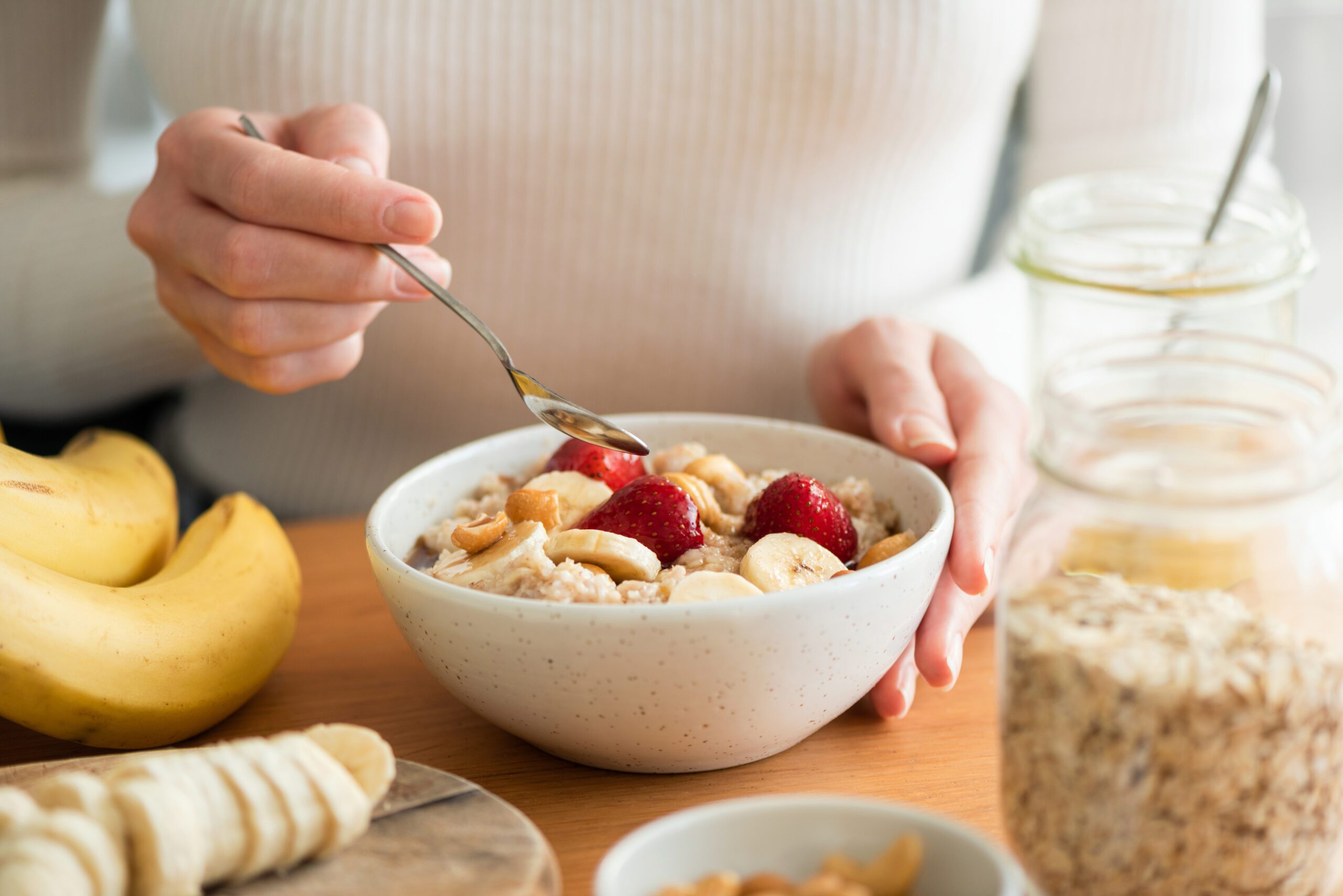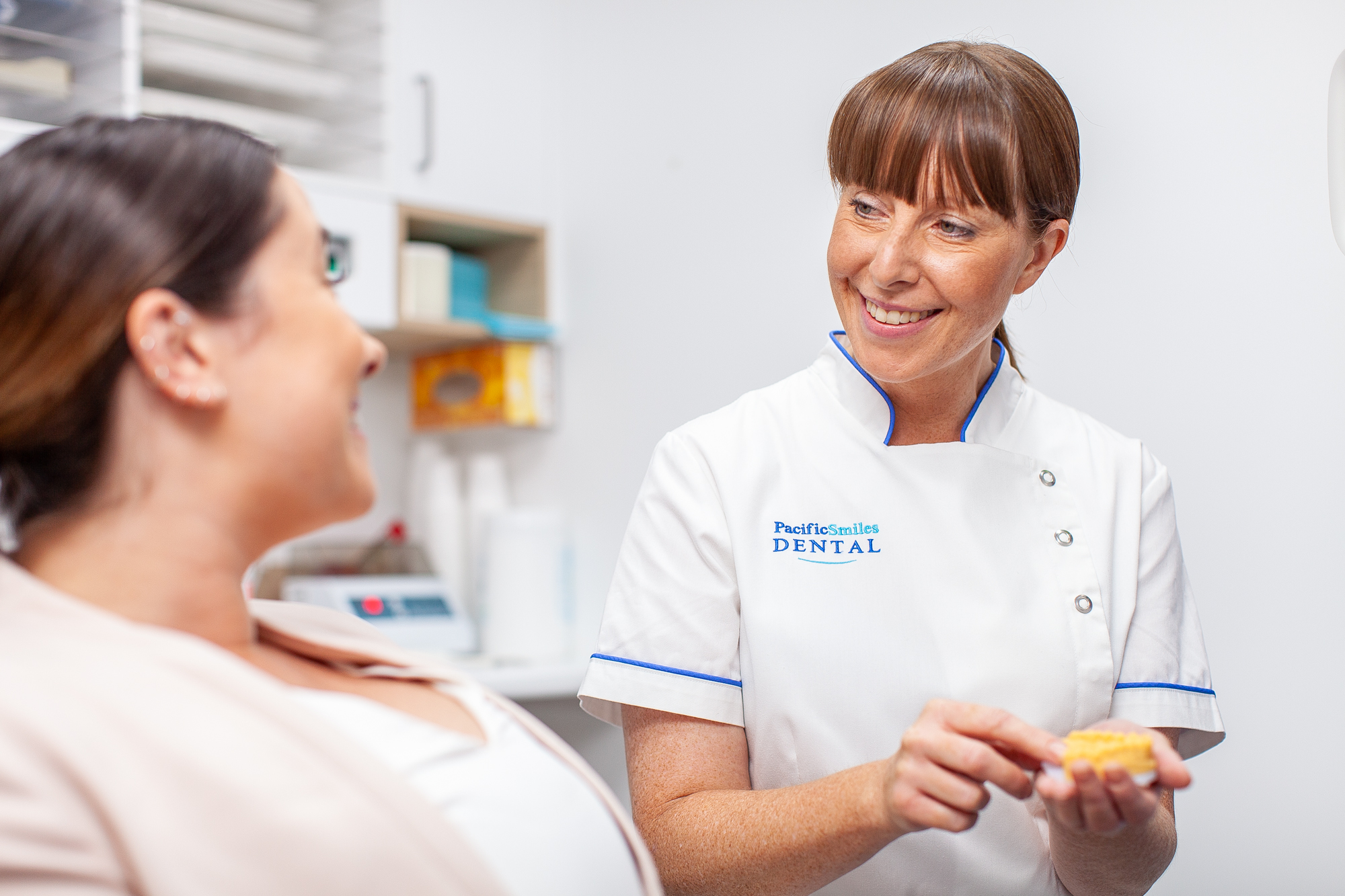 24 January 2024
24 January 2024
Many of us tend to steer away from too many foods containing lots of sugar especially after the holidays. But you may be surprised to know that sugar is also found in many natural foods that we deem as healthy for our teeth and body. We refer these as ‘hidden sugars’
What does this mean for my teeth?
When sugar is consumed it interacts with the bacteria within the tooths plaque to produce acid. This can dissolve tooth enamel and cause tooth decay if not cared for properly with routine tooth brushing and regular dental check-up and cleans. Unfortunately for us, oral bacteria are not picky when it comes to the type of sugar they want to feed on, whether it is natural, refined, liquid or grains, so it’s worth looking at some low sugar alternatives.
Fruits, vegetables, dairy and grains all contain sugar in their purest forms and are still healthy for our entire bodies, but it’s important to care for our teeth while eating these foods. The best way to deal with this is to maintain regular preventative dental check-ups and continue brushing our teeth at the end of the day, no matter what we have been eating, whether that be natural or added sugars.
It’s worth taking note of how much and how often we’re eating sugar, in whatever form it’s in so you can make some alternative choices when it comes the foods we frequent most.
Common foods and drinks with hidden sugars include;
- Processed cereals, especially cereals which are popped, flaked or fried2.
- Flavoured yoghurt with added fruits2.
- Condiments such as tomato and BBQ sauces, salad dressings and relishes2.
- Prepackaged foods such as baked beans and packet soups.
- Muesli, fruit and ‘snack’ bars.
- Fruit juice.
- Flavoured milk.
- Sports or energy drinks.
- Alcoholic drinks, especially when combined with an acidic mixer, such as soft drink or fruit juice3.
Tooth friendly alternatives
Try opting for these alternatives to support your teeth;
- Unprocessed cereals– The least processed cereals usually have single whole-food ingredients like plain rolled whole oats. You can make your own home-made granola with unprocessed ingredients.
- Carrot and celery sticks– these are great sources of fibre, vitamin C, and vitamin A and are hydrating for your teeth.
- Leafy greens – Kale and spinach are high in calcium, folic acid, and B vitamins.
- Apples – Provide a great source of hydration, fibre and saliva production which helps to protect teeth enamel.
- Milk, cheese and dairy foods – dairy encourages your body to produce more saliva, protecting your teeth while calcium and protein help to strengthen teeth.
- Plain yoghurt– calcium and protein help to strengthen your teeth without added sugars. You can add fresh fruits such as berries.
- Black and green teas – These contain antioxidants, which help remove harmful bacteria from the mouth.
- Lean proteins – Meat, fish, poultry, and tofu help to keep teeth healthy with good sources of phosphorous and protein.
- Nuts– Almonds are a great source of calcium and protein while being low in sugar.
Tooth-happy tips for healthier snacking
- Read food labels – sugar can also be named as glucose, sucrose, lactose or syrups. Any foods with more than 15g sugar per 100g are high in added sugar. The best choices are foods with less than 5g per 100g1.
- Use a straw when drinking sweet liquids – this minimises contact between the beverage and teeth.
- Reduce snacking between meals – this helps to reduce acid attacks on our teeth4.
- Learn to love your saliva – it plays an important role in remineralising and strengthening teeth.
- Drink water and chew sugar-free gum – Chewing sugar-free gum and drinking water after and between meals can increase the flow of saliva and help replace minerals more quickly4.
- Practice mindful eating – take your time enjoying meals and try to keep ‘treat’ foods for special occasions.
Sugar is all around us, making it almost impossible to avoid altogether – and besides, to many of us, sugar tastes good. When it comes to natural sugars, there is no reason to avoid these in our diets as they contain only small amounts of natural sugars but also fibres, vitamins, minerals and other beneficial combinations that are good for our teeth and bodies.
If it’s been a while since you last saw the dentist, book an appointment for your regular dental check-up. Your dentist can also discuss the effects of sugars on your oral health and can identify any issues early on.
1Exposing the hidden sugar in your diet – Cancer Council Victoria (cancervic.org.au)
2Finding the Hidden Sugar in the Foods You Eat | Johns Hopkins Medicine
3https://www.teeth.org.au/alcohol
4 Limit the Effects of Sugar on Teeth | Colgate® Oral Care
5Types of Sugar: 56 Common Ones You Should Know (healthline.com)





